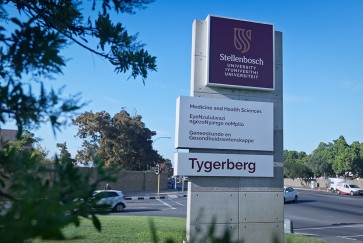The work that universities do on the local, regional and national levels plays a critical role in addressing global challenges, a group of leaders from schools around the world affirmed during a convention hosted recently by Northwestern University.
Held online through Zoom, the first virtual Convening of Presidential Delegates from the U7+ Alliance of World Universities attracted more than 100 senior officials and faculty from 33 universities across 13 countries for two days of discussion on the role and future of higher education and how universities can operate as global actors and help solve global challenges.
The U7+ Alliance is the first coalition of university presidents dedicated to defining concrete actions universities can take to collectively address global challenges in coordination with government leaders in G7 countries and beyond.
“Universities are in a unique position to provide intellectual and scientific leadership that advances initiatives to address shared global challenges,” said Annelise Riles, Northwestern’s associate provost for global affairs and executive director of the Northwestern Roberta Buffett Institute for Global Affairs. “We have an opportunity to work in coordinated and collaborative ways to foster the next generation of global leaders and catalyze action toward a more just and sustainable future.”
September’s virtual convening of U7+ Alliance Presidential Delegates set the stage for the 2020 U7+ Summit, which Northwestern University will host this November in partnership with Columbia University, Georgetown University and the University of California, Berkeley in November.
Here are three takeaways from the September event:
Universities’ work in local communities serves as a foundation for global collaboration
The concrete actions universities take at the local, regional and national levels play a critical role in addressing global challenges.
“Our role is to help solve problems within our communities and act as mentors. Especially during the pandemic, we have a responsibility to connect the local to the global and vice versa,” said Gabriel Capitelli, Rector of the University of Buenos Aires in Argentina.
In fact, deep work at the local level is viewed as foundational to global collaboration, in the sense that it enables the kind of cross-national comparison necessary to identify promising approaches to addressing global challenges within particular cultural and sociopolitical contexts.
“As universities, we have a public mission to contribute to global society. Universities are civil society actors that educate global citizens and promote global service,” said Genta Kawahara, Executive Vice President of Global Engagement and Student Support at Osaka University in Japan.
Yet there was also the sense that comparative analysis is not enough — that coordination and collaboration across geographic and disciplinary silos is more important now than ever as global challenges grow increasingly complex.
“For universities to be truly effective global actors, they need to act on the basis of humility not hubris, compassion not competition, and engagement not estrangement,” said Murali Chandrakshekaran, Vice Provost, International at the University of British Columbia. “None of the global problems we face can be addressed within disciplinary or institutional silos, so the idea of partnership and process are important.”
By leveraging new networks such as the U7+ Alliance and linking their actions to existing frameworks for addressing global changes, such as the United Nations Sustainable Development Goals, universities have the opportunity to develop a collective voice greater than the sum of their parts.
Connections to and influence of the G7: How close is too close?
While U7+ delegates agreed universities need to better position themselves as global actors, they expressed disparate views of and a degree of discomfort with the U7+ Alliance actively striving to influence the G7 agenda. On the one hand, delegates recognized the U7+ Alliance’s potential to serve as a powerful advocate of science and evidence-based policymaking. They acknowledged the U7+ Alliance has a real opportunity to become an influential conduit of ideas and information on a global scale. Yet they felt becoming too intertwined with the political agenda of the G7 could compromise higher education institutions’ neutrality and alienate universities based outside of G7 countries, particularly those in the Global South.
The U7+ Alliance’s diversity is seen as one of its greatest strengths, and there was a sense that it needs to position itself as an independent advocate for global cooperation and the open mobility of ideas, individuals and resources, unencumbered by outside political agendas.
“When we take actions, it should position us as actors, rather than advisors,” said Vanessa Scherrer, Vice President for International Affairs at Science Po in France.
Looking ahead to the 2020 U7+ summit and imagining a post-COVID world
Delegates agreed that COVID-19 poses massive challenges, but universities need to look beyond the pandemic to address other imminent threats such as climate change and the erosion of academic freedom.
They expressed a desire to build off of the Commitments, Principles, and Actions established during last year’s U7+ Summit while identifying new areas of focus rooted in student feedback.
The U7+ needs “to ensure that, as we define our objectives, we’re not doing it in an abstract way, but with the key stakeholders — our students,” said Jeremy Ghez, associate professor of Economics and International Affairs at HEC Paris.

